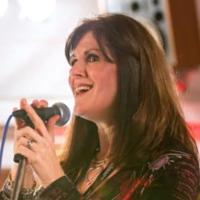Beyond 4/4 Time
Thursday 28th October 2021, 5:00 PM - 7:00 PM (London Time)
Vocal exercises are the bed rock of vocal practice and they can be used to develop a singer’s musicianship alongside technique. Just as a train track has two rails to stay balanced, it is proposed by the presenter that a “two-track” approach to a singer’s development would be equal emphasis on technique AND musicianship throughout training, as opposed to the more “monorail” emphasis on technique alone. To use another metaphor, we can stand on one leg but we are more balanced standing on two. As the eminent classical pedagogue, Richard Miller, sagely said: “Be first a musician and second a singer”. But how can this objective be achieved in a lesson context?
In her presentation last year – “Beyond The Major Scale” – Kim Chandler suggested that there is currently an over-emphasis and over-reliance on major scale-based patterns in vocal exercises at the expense of the appetising array of other musical patterns that vocal melodies are constructed on, e.g. scales such as the Natural Minor & the Pentatonics and modes such as the Dorian & Lydian.
This presentation is the rhythmic counterpart, suggesting that there is also an over-abundance of songs written in 4/4 time in pop repertoire at the expense of other possibilities.
From analysing and singing through pop song excerpts across the eras, this interactive workshop will introduce music based on a range of other time signatures including odd meters, compound meters, cross rhythms etc. The presenter will then show how rhythmic-based work can be applied to technically-demanding vocal exercises that are also musically challenging. This concept can be applied to any style of singing and doubles the educational value of exercises.
Kim Chandler
Kim Chandler (MMus BMusEd) is a renowned contemporary vocal coach & session singer. She runs a busy private studio in Marbella, Spain, where she coaches an elite clientele of stadium band singers, including BRIT award winners & GRAMMY nominees, artists from a range of genres, professional singers and vocal coaches online.
Sorry, this is an archived short course...
We have plenty of upcoming short courses coming soon. See details of some of them below or look at the full list of short courses.

Thursday 19th February 2026
1:00 PM - 2:30 PM
Thursday 26th February 2026
1:00 PM - 2:30 PM
(London Time)
Performing Pain: Vocal Health in Emotional Roles!

Louisa Morgan
How connected are acted emotions to our real-life emotions? Are they expressed differently? Do they feel different in the body? This 2-part course with Louisa Morgan looks at the potential impact of acted emotion on vocal health, why we should consider it as voice practitioners, and how to care for our performers needing to work with it.


Tuesday 24th February 2026
5:00 PM - 7:00 PM
(London Time)
Incorporating CBT principles within vocal health and voice care

Dr Luke Aldridge-Waddon
Join Dr Luke Waddon as he introduces the principles and techniques within cognitive-behavioural therapy (CBT) in relation to the voice and voice care. He will discuss psychological factors relevant to the development and maintenance of voice disorders and how these might be approached from a cognitive-behavioural perspective. He will describe theoretical concepts and therapeutic components often used within CBT and consider how these might be applied when working with voice users.


Tuesday 3rd March 2026
5:00 PM - 7:00 PM
(London Time)
Sex differences in VOICE!

Dr Richard Lissemore
This two-hour workshop, led by performer, articulatory phoneticist, and voice physiologist, Dr. Richard Lissemore, will examine in detail the role that biological sex plays in the perception and pedagogy of singing voices. We'll consider how parameters such as anatomy, physiology, articulation, resonance, and radiated acoustics influence the perceptions and pedagogical decision-making of singing teachers.
